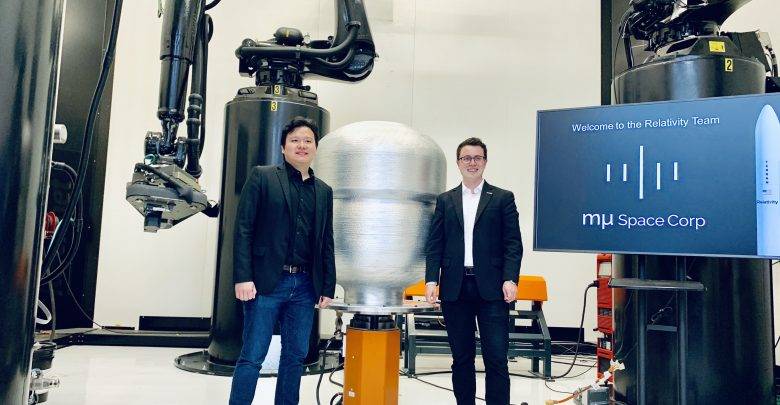Aerospace manufacturer Relativity Space this week announced a new partnership with Thailand-based startup mu Space. The two companies have signed a contract through which Relativity will launch a mu Space low Earth satellite on its 3D printed Terran 2 rocket in 2022.
Though the specific terms of the contract have not been disclosed, the launch will leverage Relativity Space’s unique 3D printing platform as well as the Terran 1’s flexible architecture to offer mu Space a cost efficient LEO satellite launch. Until the launch date in 2022, the companies will work together, sharing their respective expertise and resources to revitalize and transform the U.S. and Asia-Pacific satellite launch industry.
“mu Space is accelerating space technology development in Asia, and we consider the moon as the next explorable body in space beyond Earth,” said James Yenbamroong, CEO and founder of mu Space. “Relativity has the vision, team, and technology to deliver exceptional advantages in launching mu Space’s payloads, and supporting our goal of creating an interplanetary society in the future.”
Relativity Space has developed the first aerospace platform to combine machine learning, software and robotics with metal 3D printing. The company’s unique capabilities and large-format Stargate 3D printer have enabled it to revolutionize the rocket manufacturing process, consolidating parts and speeding production up dramatically from years to days. For instance, Relativity Space expects to produce its Terran 1 rocket—the world’s first 3D printed rocket—in just 60 days.
mu Space is innovative in its own right, developing Low Earth Orbit (LEO) and Geosynchronous Earth Orbit (GEO) satellites and space technologies. The company’s mission is to accelerate the adoption of IoT technologies in smart cities and to promote space investments in the Asia-Pacific region.
“We’re excited to partner with mu Space, a disruptive innovator in the Asia-Pacific region, to launch their satellite and space technologies with our 3D printed Terran 1 rocket,” commented Tim Ellis, CEO and cofounder of Relativity. “We look forward to collaborating to strengthen the U.S. and Asia-Pacific space economy, and to advancing the future of humanity in space together with James and the entire mu Space team.”
This particular collaboration follows a recent announcement by Relativity that it signed a multi-launch contract with satellite operator Telesat to support the latter’s LEO constellation. The startup also recently signed a deal with the U.S. Air Force to begin launching its rockets from the Launch Complex 16 at Cape Canaveral in Florida. Launch Complex 16.
At this stage, the venture-backed company says it is on track to conduct its first orbital test launch at the end of 2020. It has already test-fired over 100 rocket engines built from 3D printed components, proving the viability of its 3D printed rocket technology.
Source: 3dprintingmedia.network


